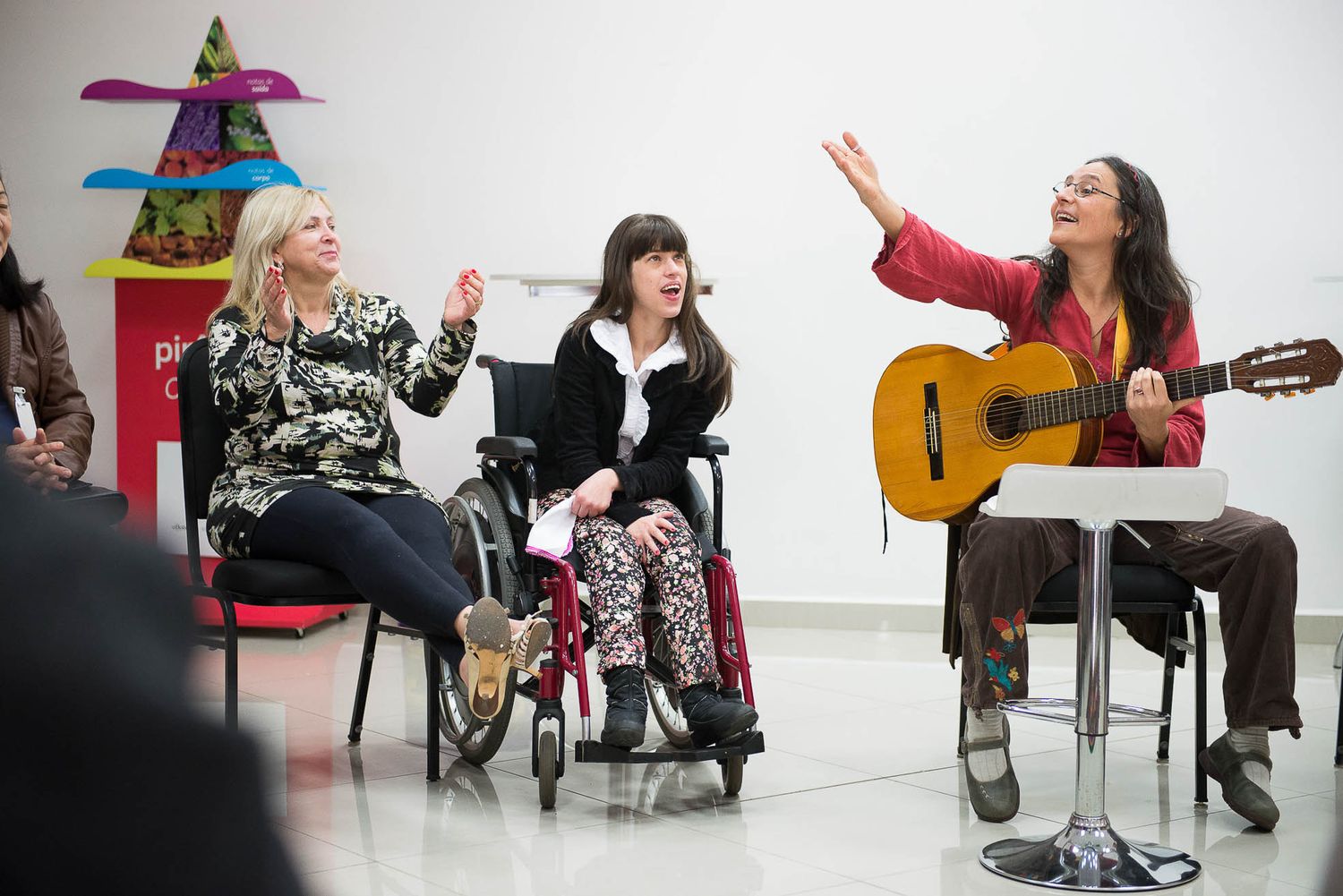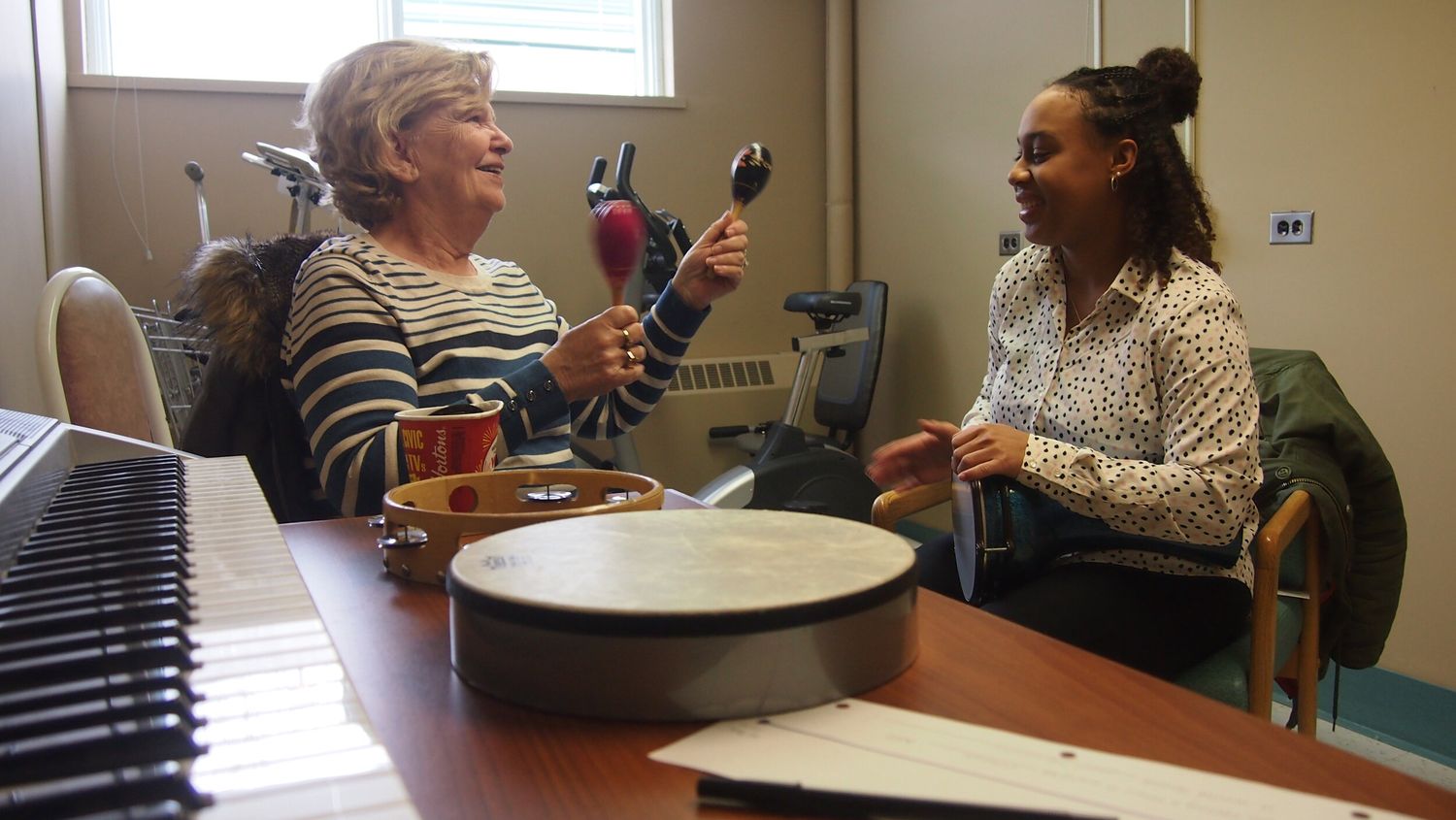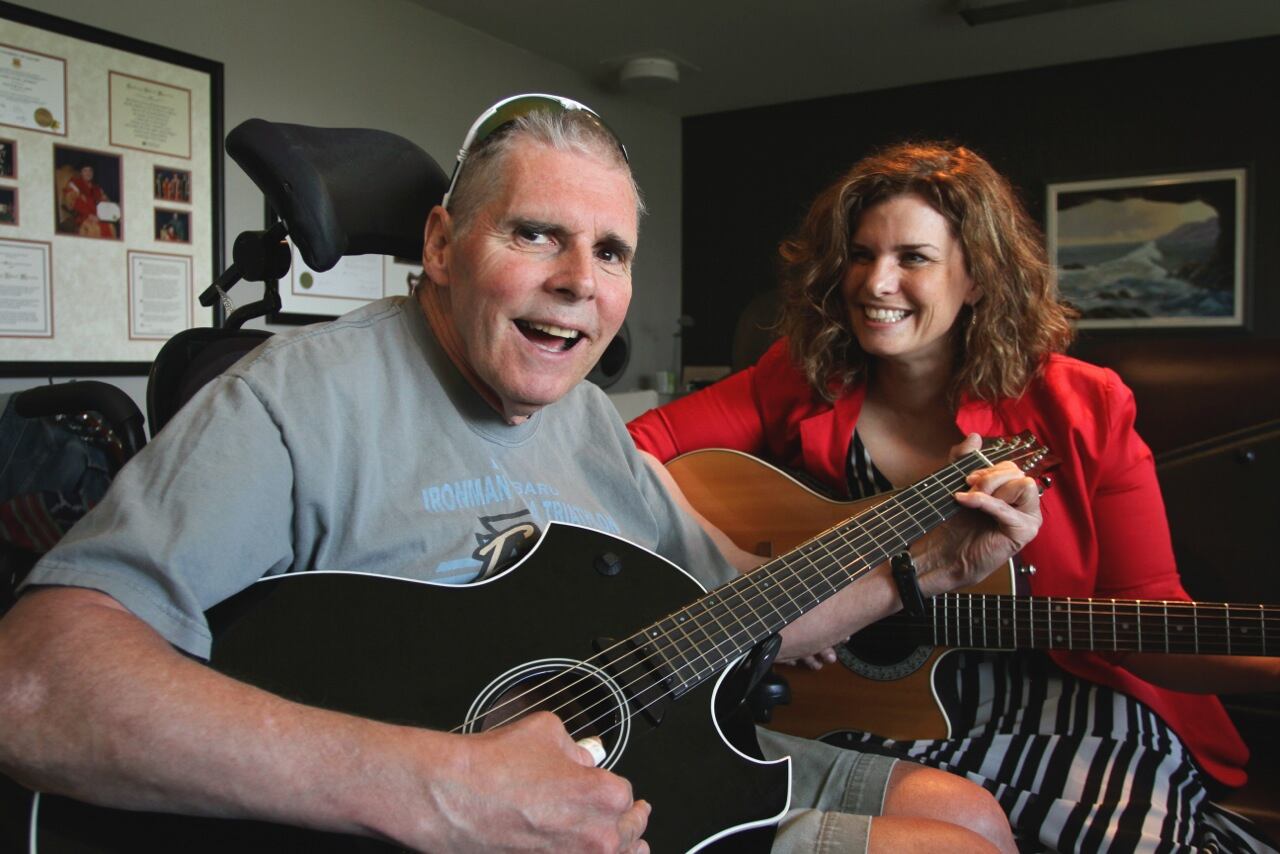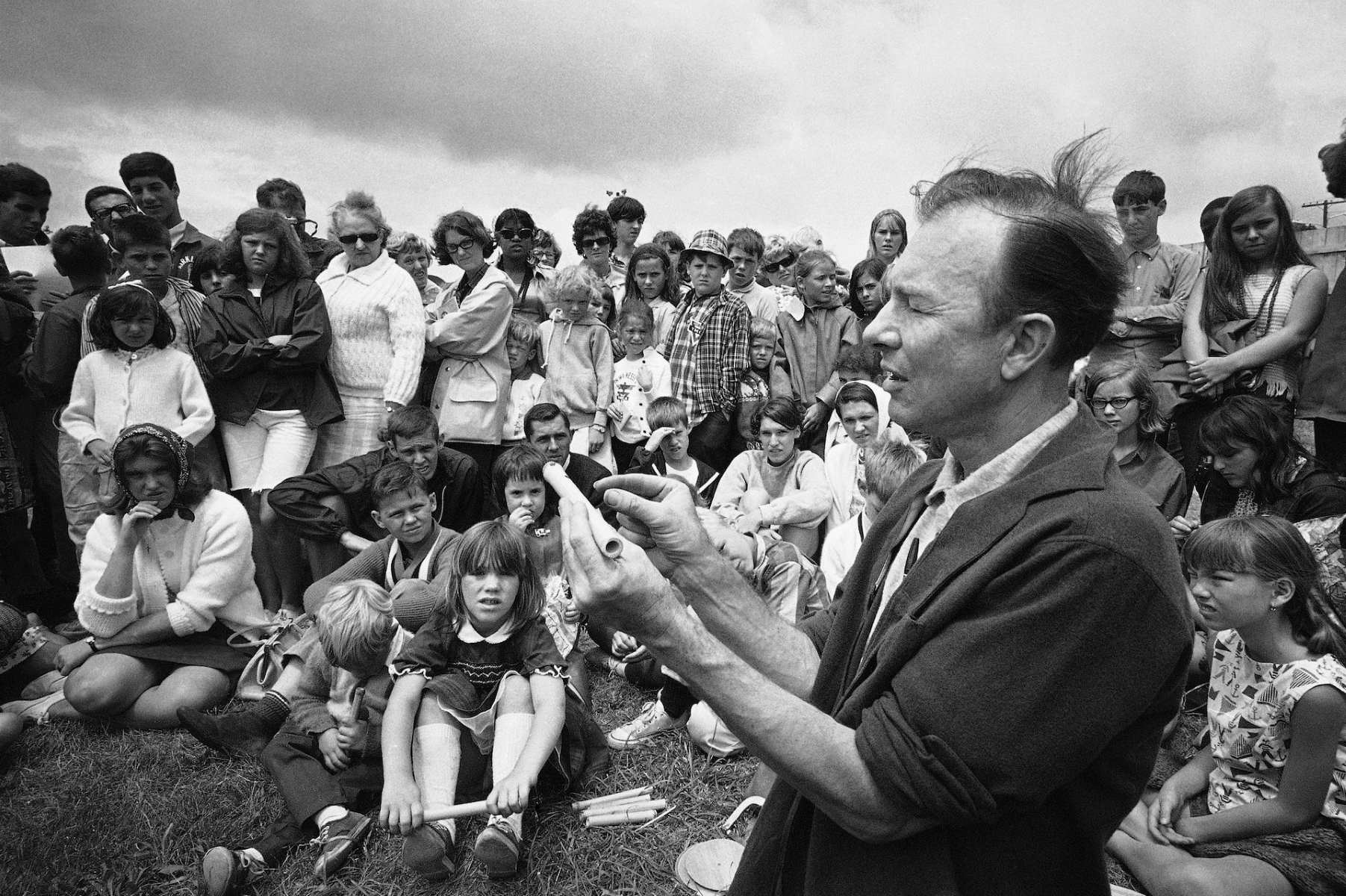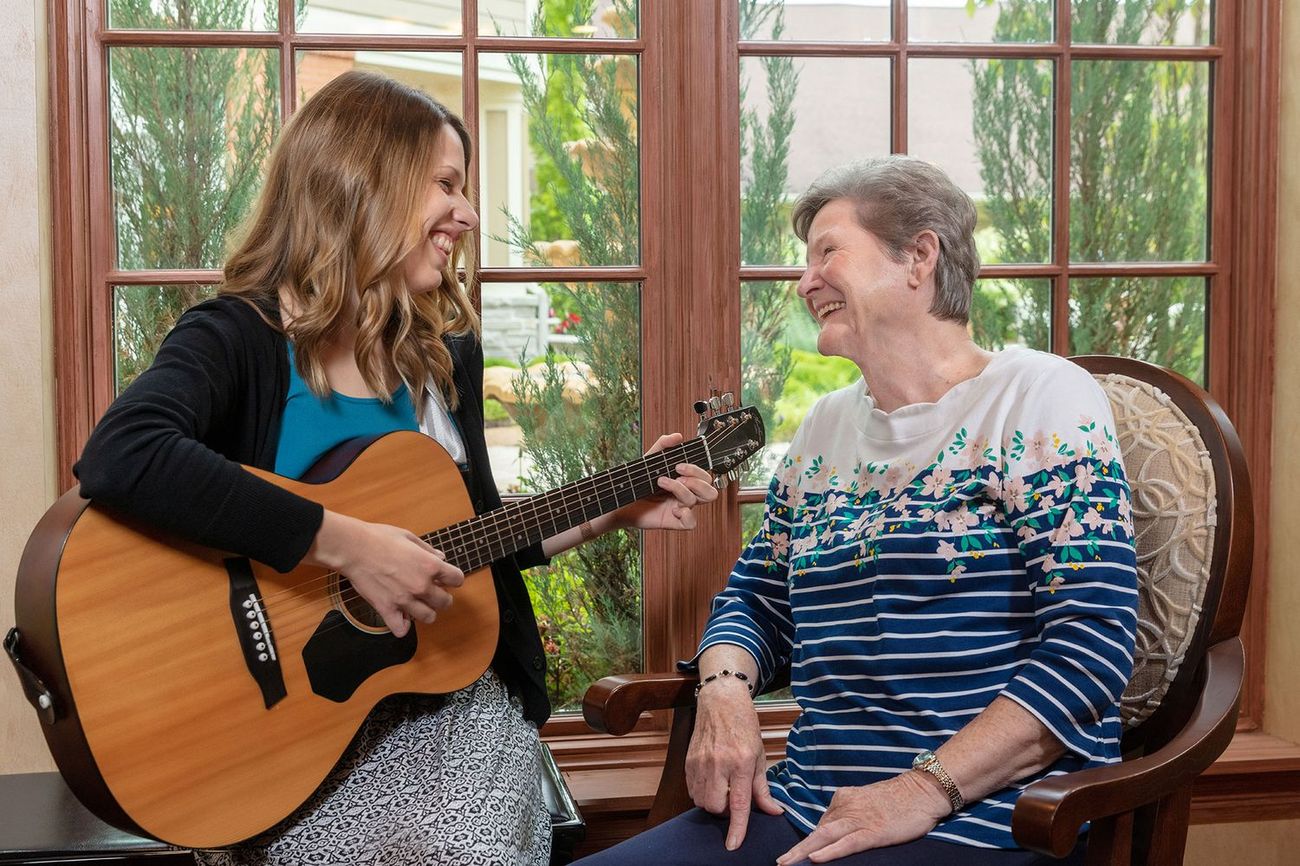Home>Events & Info>Music Therapy>How Music Therapy Helped World War 2 Veterans


Music Therapy
How Music Therapy Helped World War 2 Veterans
Published: February 2, 2024
Discover how music therapy positively impacted World War 2 veterans, offering healing and support. Explore the benefits and effectiveness of music therapy for veterans.
(Many of the links in this article redirect to a specific reviewed product. Your purchase of these products through affiliate links helps to generate commission for AudioLover.com, at no extra cost. Learn more)
Table of Contents
Introduction
Music therapy is a powerful and effective therapeutic approach that utilizes the transformative power of music to address physical, emotional, cognitive, and social needs of individuals. It has been proven to be particularly beneficial for World War 2 veterans who may have experienced traumatic events during their service.
The impact of World War 2 on veterans is profound and long-lasting. Many veterans return home with physical injuries, but they also carry unseen scars like post-traumatic stress disorder (PTSD) and depression. These conditions can greatly affect their quality of life, making it difficult for them to reintegrate into society and cope with everyday tasks.
Music therapy offers a unique and holistic way to support and address the various challenges faced by World War 2 veterans. It taps into the power of music to create a therapeutic and healing environment that promotes emotional expression, communication, relaxation, and overall well-being.
This article will delve into the benefits of music therapy for World War 2 veterans, exploring how it can positively impact their physical and emotional well-being. We will also examine some compelling case studies that demonstrate the transformative power of music in the lives of these veterans. Additionally, we will address the challenges and limitations of music therapy in this context.
By highlighting the effectiveness of music therapy in helping World War 2 veterans, we hope to create greater awareness of this valuable therapeutic tool and inspire more individuals to explore its potential for rehabilitation and healing.
Background of World War 2 Veterans
World War 2 was a global conflict that lasted from 1939 to 1945, involving many countries and resulting in the loss of millions of lives. The brave men and women who fought during this war endured unimaginable hardships and witnessed the devastation of war firsthand.
World War 2 veterans are a unique generation of individuals who made significant sacrifices for their countries. They served on the front lines, enduring intense physical and psychological challenges. Many veterans experienced combat trauma, injuries, and the loss of comrades.
Returning home from the war, these veterans faced the daunting and often overwhelming task of readjusting to civilian life. They carried with them the physical and emotional scars of their experiences, which often went unrecognized and unsupported.
Furthermore, the stigma surrounding mental health during that era meant that many veterans suffered in silence. The lack of understanding and resources to address their needs meant that many veterans struggled with issues such as post-traumatic stress disorder (PTSD), depression, anxiety, and isolation.
Today, World War 2 veterans are in their twilight years, and the challenges they face continue to evolve. As they age, they may experience physical ailments, cognitive decline, and heightened emotional vulnerability. Therefore, it is crucial to provide them with appropriate and effective therapeutic interventions to support their well-being.
Music therapy has emerged as a powerful approach to addressing the unique challenges faced by World War 2 veterans. Its person-centered and non-invasive nature make it particularly well-suited for individuals who may be hesitant to engage in traditional talk therapies.
Understanding the historical context and the specific challenges faced by World War 2 veterans is essential in appreciating the significance of music therapy in their rehabilitation and recovery. By honoring their service and offering them the support they deserve, we can help them find healing and solace in the power of music.
Understanding Music Therapy
Music therapy is an evidence-based therapeutic approach that utilizes the power of music to address a wide range of physical, emotional, cognitive, and social needs. It involves the intentional use of music by a trained music therapist to achieve specific therapeutic goals with individuals or groups.
Music therapy is based on the understanding that music has a profound impact on our brain and body. It can elicit emotional responses, stimulate memories, and engage various areas of the brain responsible for language, movement, and emotional processing.
A qualified music therapist utilizes a combination of musical elements such as rhythm, melody, harmony, and lyrics, along with therapeutic techniques and interventions. These may include improvisation, songwriting, vocal or instrumental performance, and listening to music.
Music therapy sessions are tailored to meet the individual needs and goals of the participants. The music therapist establishes a safe and supportive environment where the participant can freely express themselves through music. This creative and expressive medium allows for emotional exploration, communication, and personal growth.
In the context of World War 2 veterans, music therapy can play a vital role in addressing a range of physical and emotional issues commonly experienced by this population. It can help reduce anxiety and stress, improve mood and emotional well-being, enhance cognitive function, foster social connections, and promote physical rehabilitation and pain management.
A music therapist collaborates with other healthcare professionals, including doctors, psychologists, and occupational therapists, to develop an individualized treatment plan for each veteran. This interdisciplinary approach ensures that the diverse needs of the veteran are addressed holistically and comprehensively.
It is important to note that music therapy is distinct from recreational music activities or simply listening to music for enjoyment. While these activities may have their own benefits, music therapy is a specialized and evidence-based therapeutic intervention guided by a trained professional.
Overall, music therapy provides a powerful and creative avenue for World War 2 veterans to find healing and support. By harnessing the therapeutic potential of music, it helps them navigate their physical and emotional challenges, fostering a sense of connection, meaning, and well-being.
Benefits of Music Therapy for World War 2 Veterans
Music therapy offers a multitude of benefits for World War 2 veterans, addressing their unique physical, emotional, and cognitive needs. Let’s explore some of the key advantages of music therapy in this context:
- Emotional Regulation: Music has the power to evoke strong emotions and memories. For World War 2 veterans, music therapy provides a safe space to process and express their emotions. It can help them regulate feelings of anger, sadness, and grief, allowing for emotional healing and resilience.
- Stress Reduction: Veterans often face high levels of stress and anxiety due to their wartime experiences and the challenges of readjusting to civilian life. Engaging in music therapy sessions can promote relaxation, reduce physiological stress responses, and improve overall emotional well-being.
- Enhanced Cognitive Function: Music therapy engages various areas of the brain, stimulating cognitive function such as memory, attention, and executive skills. For veterans experiencing cognitive decline, music therapy can provide a stimulating and enjoyable way to maintain or improve cognitive abilities.
- Pain Management: Chronic pain is a common issue among World War 2 veterans. Music therapy has been shown to reduce pain perception and improve coping mechanisms. By focusing on the musical experience, veterans can shift their attention away from pain, promoting pain relief and increased comfort.
- Social Connection: Isolation and loneliness are prevalent among veterans, especially as they age. Music therapy provides opportunities for social engagement and connection with others. Group music therapy sessions foster a sense of camaraderie, mutual support, and positive interaction, combatting feelings of isolation.
- Improved Communication: For veterans struggling with verbal expression or communication challenges, music therapy offers an alternative form of communication. Through music, they can express their thoughts, feelings, and experiences, bridging the gap and facilitating meaningful connections.
- Reintegration and Identity: Music therapy can help veterans rediscover their identity and sense of self outside of their military experiences. It supports reintegration into civilian life by fostering a positive and fulfilling outlet for self-expression and personal growth.
These benefits of music therapy for World War 2 veterans are significant in improving their overall well-being and quality of life. By harnessing the therapeutic power of music, veterans can find healing, support, and a renewed sense of purpose.
Case Studies of Music Therapy Success Stories
Music therapy has demonstrated remarkable success in improving the lives of World War 2 veterans. Let’s explore a few inspiring case studies that highlight the transformative power of music therapy in this context:
- John’s Journey to Self-Expression: John, a World War 2 veteran, experienced severe PTSD and struggled to express his emotions verbally. Through weekly music therapy sessions, John began playing the guitar and composing songs. Music became his outlet for emotional release and healing. Over time, John’s family observed positive changes in his mood and communication. Music therapy empowered John to find his voice and connect with others on a deeper level.
- Elizabeth’s Cognitive Improvement: Elizabeth, a World War 2 nurse, had been experiencing memory decline. Engaging in music therapy sessions that incorporated familiar melodies and rhythm games, she experienced notable improvement in her memory and cognitive function. Elizabeth’s ability to recall details of her wartime experiences improved, providing her with a sense of validation and empowerment.
- James’ Pain Management: James, a World War 2 veteran living with chronic pain, struggled to find effective pain management strategies. By participating in music therapy sessions, James found relief and distraction from his pain. With the guidance of a music therapist, he learned relaxation techniques and played percussion instruments, which helped reduce his pain perception and provided him with a renewed sense of control over his physical well-being.
- Emily’s Emotional Healing: Emily, a widow of a World War 2 veteran, experienced profound grief and depression. Through grief-focused music therapy, she found solace and a safe space to express her emotions. Emily and the music therapist collaborated on creating a personalized playlist of nostalgic songs that held special meaning for her and her late husband. Engaging with these songs allowed Emily to process her grief, find comfort, and move towards emotional healing.
- Robert’s Social Connection: Robert, a World War 2 veteran who had become isolated and withdrawn, joined a music therapy group for veterans. Through drumming circles, singing, and listening to music together, Robert gradually opened up and formed connections with fellow veterans. The group sessions provided a supportive and inclusive environment where Robert felt understood, valued, and part of a community once again.
These case studies highlight the transformative impact of music therapy on the lives of World War 2 veterans. From facilitating emotional expression and cognitive improvement to pain management and social connection, music therapy has the potential to make a profound difference in the well-being and quality of life of these brave individuals.
Challenges and Limitations of Music Therapy
While music therapy offers numerous benefits for World War 2 veterans, it is essential to acknowledge and understand the challenges and limitations of this therapeutic approach:
- Individual Variability: Each veteran has unique needs and responses to music therapy. What may be effective for one veteran may not work for another. It is crucial for music therapists to carefully tailor interventions to meet the specific needs and preferences of each individual.
- Access and Availability: Access to music therapy services may be limited for some veterans, especially those living in remote areas or with financial constraints. The availability of qualified music therapists and the cost of therapy can pose barriers to receiving the necessary treatment.
- Resistance or Reluctance: Some veterans may be initially resistant or reluctant to engage in music therapy. This could be due to long-held beliefs about therapy or skepticism toward the effectiveness of non-traditional approaches. Building trust and rapport with veterans is crucial to overcoming this challenge.
- Contextual Factors: The context in which music therapy takes place can influence its effectiveness. Factors such as the physical environment, cultural backgrounds, and social dynamics can impact the therapeutic outcomes. Music therapists must consider and adapt to these contextual factors for optimal results.
- Scope of Practice: Music therapists must work within their scope of practice and collaborate with other healthcare professionals to address the diverse needs of veterans. While music therapy can be a valuable component of a comprehensive treatment plan, it is important to recognize that it may not be the sole solution for all the issues that veterans may face.
- Research Limitations: While there is a growing body of research supporting the effectiveness of music therapy, further studies are needed to explore its long-term benefits and specific outcomes for World War 2 veterans. Continued research can help refine practice and improve the evidence base for integrating music therapy into veteran care.
Despite these challenges and limitations, music therapy remains a valuable and impactful intervention for World War 2 veterans. By recognizing these factors, addressing barriers, and adapting the approach to individual needs, we can optimize the therapeutic benefits of music therapy and better support the well-being of these brave individuals.
Conclusion
Music therapy has proven to be a powerful and effective therapeutic approach for World War 2 veterans. It offers a unique and holistic way to address the physical, emotional, cognitive, and social needs of these individuals who have experienced the profound impact of war.
By harnessing the power of music, music therapy provides a safe and supportive environment for veterans to express their emotions, manage stress, improve cognitive function, alleviate pain, foster social connections, and discover a renewed sense of self and purpose.
The case studies highlighted in this article demonstrate the transformative impact of music therapy on the lives of World War 2 veterans. From facilitating emotional healing to enhancing cognitive abilities and promoting social interaction, music therapy has the potential to positively influence all aspects of their well-being.
However, there are challenges and limitations to be aware of, such as individual variability, limited access, resistance or reluctance, contextual factors, and the need for ongoing research. Overcoming these obstacles requires tailored interventions, improved availability of services, trust-building, consideration of contextual factors, collaboration with healthcare professionals, and continued research efforts.
Overall, music therapy provides a powerful and non-invasive therapeutic approach that honors the service and sacrifices of World War 2 veterans. It offers hope, healing, and support, allowing these individuals to find solace, connection, and renewed joy in the transformative power of music.
By raising awareness about the benefits of music therapy and advocating for its integration into veteran care, we can ensure that World War 2 veterans receive the comprehensive support they deserve and improve their quality of life in their later years.
References
Pacchetti, C., et al. (2016). Music therapy and neuroplasticity: How music helps the brain. European Journal of Neurology, 23(11), 1619-1629.
Aalbers, S., et al. (2019). Music therapy for depression. The Cochrane Database of Systematic Reviews, 8(8), CD004517.
Guetin, S., et al. (2013). The effect of music therapy on mood and anxiety-depression: An observational study in institutionalized patients with traumatic brain injury. Annals of Physical and Rehabilitation Medicine, 56(5), 332-348.
Wang, Z., et al. (2020). The effects of music therapy on post-traumatic stress disorder: A systematic review and meta-analysis. Frontiers in Psychology, 11, 299.
Fleming, E., et al. (2019). Combining music and reminiscence therapy interventions for wellbeing in elderly populations: A systematic review. Complementary Therapies in Clinical Practice, 35, 293-304.
Elefant, C., et al. (2017). Music therapy for military populations: A systematic review. Frontiers in Psychology, 8, 1583.
Stegemöller, E. L., et al. (2017). Exploring the effects of singing-based therapy on speech outcomes and quality of life in persons with Parkinson’s disease: A systematic review of the literature. Aging & Mental Health, 21(5), 1-12.
Shifrin, S., et al. (2018). Music interventions for dementia and depression in ELderly CanadiaNs (MIDEL-CN): Study protocol for a randomized controlled trial. Trials, 19(1), 395.
Morris, C. L., et al. (2018). Music-based interventions for dementia and depression in elderly adults: A review. Psychiatry Research, 261, 259-264.
Abbott, A., et al. (2017). Emotional and behavioural responses to music in people with dementia: A literature review. Aging & Mental Health, 21(4), 337-351.

